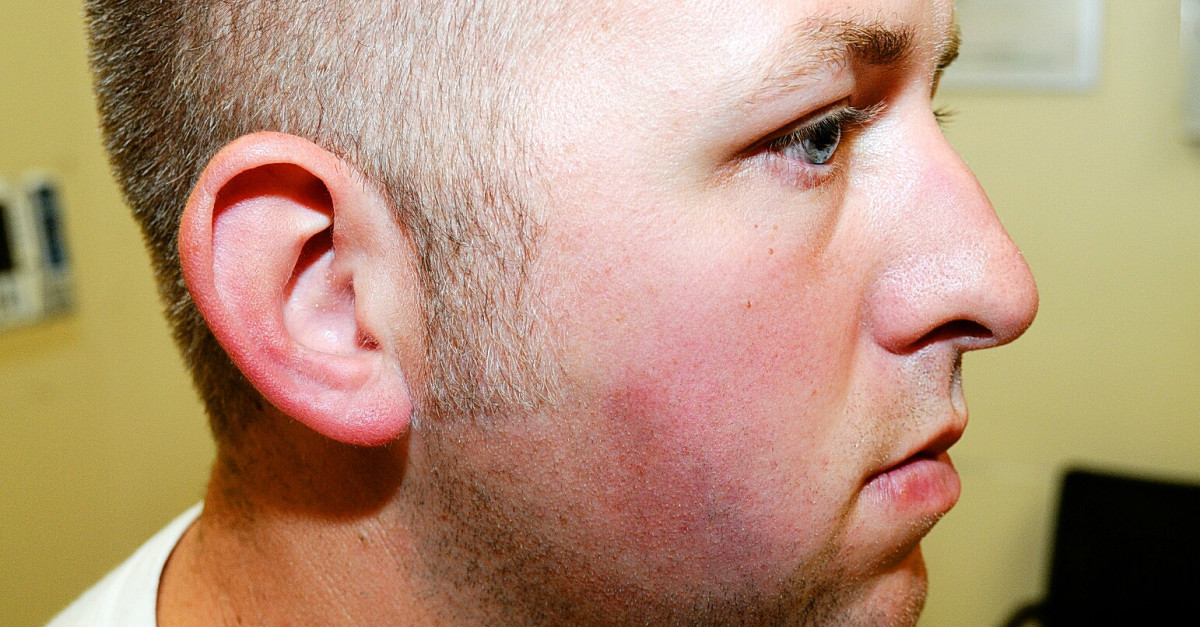News Monday that Officer Darren Wilson would not be indicted in the shooting death of Michael Brown incited protests and violent activity in the streets of Ferguson and other cities.
Videos by Rare
Buildings were burned down, windows smashed, businesses destroyed, cars melted. The whole scene left everyone asking why?
Some asked, “Why would you destroy your own city in the name of justice?” Others asked, “Why did this police officer get off scot-free without so much as a trial?”
These are both legitimate questions, but it seems the former has been stressed more than the latter.
Vox’s Ezra Klein summarized Darren Wilson’s grand jury testimony that is worth reading in its entirety. As someone who read the entire testimony, I can tell you that his characterizations of the story as “unbelievable” — in the “shocking” sense of the word — and the questions he poses about it are legitimate.
One Klein excerpt stood out in particular:
But the larger question is, in a sense, simpler: Why?
Why did Michael Brown, an 18-year-old kid headed to college, refuse to move from the middle of the street to the sidewalk? Why would he curse out a police officer? Why would he attack a police officer? Why would he dare a police officer to shoot him? Why would he charge a police officer holding a gun? Why would he put his hand in his waistband while charging, even though he was unarmed?
None of this fits with what we know of Michael Brown. Brown wasn’t a hardened felon. He didn’t have a death wish. And while he might have been stoned, this isn’t how stoned people act. The toxicology report did not indicate he was on PCP or something that would’ve led to suicidal aggression.
Which doesn’t mean Wilson is a liar. Unbelievable things happen every day. The fact that his story raises more questions than it answers doesn’t mean it isn’t true.
As Klein points out, nothing about Wilson’s story or that the events he described in it catch him in a lie, but it does raise additional questions.
Ben Casselman at FiveThirtyEight took the speculation one step further, asking a different why: Why are indictments almost always handed down in cases that don’t involve police officers?
Casselman wrote:
Former New York state Chief Judge Sol Wachtler famously remarked that a prosecutor could persuade a grand jury to “indict a ham sandwich.” The data suggests he was barely exaggerating: According to the Bureau of Justice Statistics, U.S. attorneys prosecuted 162,000 federal cases in 2010, the most recent year for which we have data. Grand juries declined to return an indictment in 11 of them.
Wilson’s case was heard in state court, not federal, so the numbers aren’t directly comparable. Unlike in federal court, most states, including Missouri, allow prosecutors to bring charges via a preliminary hearing in front of a judge instead of through a grand jury indictment. That means many routine cases never go before a grand jury. Still, legal experts agree that, at any level, it is extremely rare for prosecutors to fail to win an indictment.
“If the prosecutor wants an indictment and doesn’t get one, something has gone horribly wrong,” said Andrew D. Leipold, a University of Illinois law professor who has written critically about grand juries. “It just doesn’t happen.”
Cases involving police shootings, however, appear to be an exception.
Casselman laid out three possible reasons that grand juries decide not indict officers who have killed people in the line of duty.
1) “Jurors tend to trust police officer and believe their decisions to use violence are justified, even when the evidence says otherwise.”
2) “The second is prosecutorial bias: Perhaps prosecutors, who depend on police as they work on criminal cases, tend to present a less compelling case against officers, whether consciously or unconsciously.”
3) “Ordinarily, prosecutors only bring a case if they think they can get an indictment. [I]n high-profile cases such as police shootings, [prosecutors] may feel public pressure to bring charges even if they think they have a weak case.”
Juror bias, prosecutorial bias, weak case.
The word out of Ferguson appears to fit the lattermost of these, but who knows. There are still questions left to be answered and “why don’t police get indicted in killings?” is one of them. So why not go to a trial?
A grand jury decision to indict would have meant we would learn more about a case that clearly matters to a lot of people, Michael Brown’s parents in particular. That transparency could serve to reduce some of the tension.
At bare minimum, an indictment would have inspired confidence in the Ferguson community that the game wasn’t rigged, that due diligence did happen, that police are held to the same standards they are and that they believe “black lives matter.”
Perhaps most importantly, it would have meant that they could watch the case unfold in a forum open to the public.



